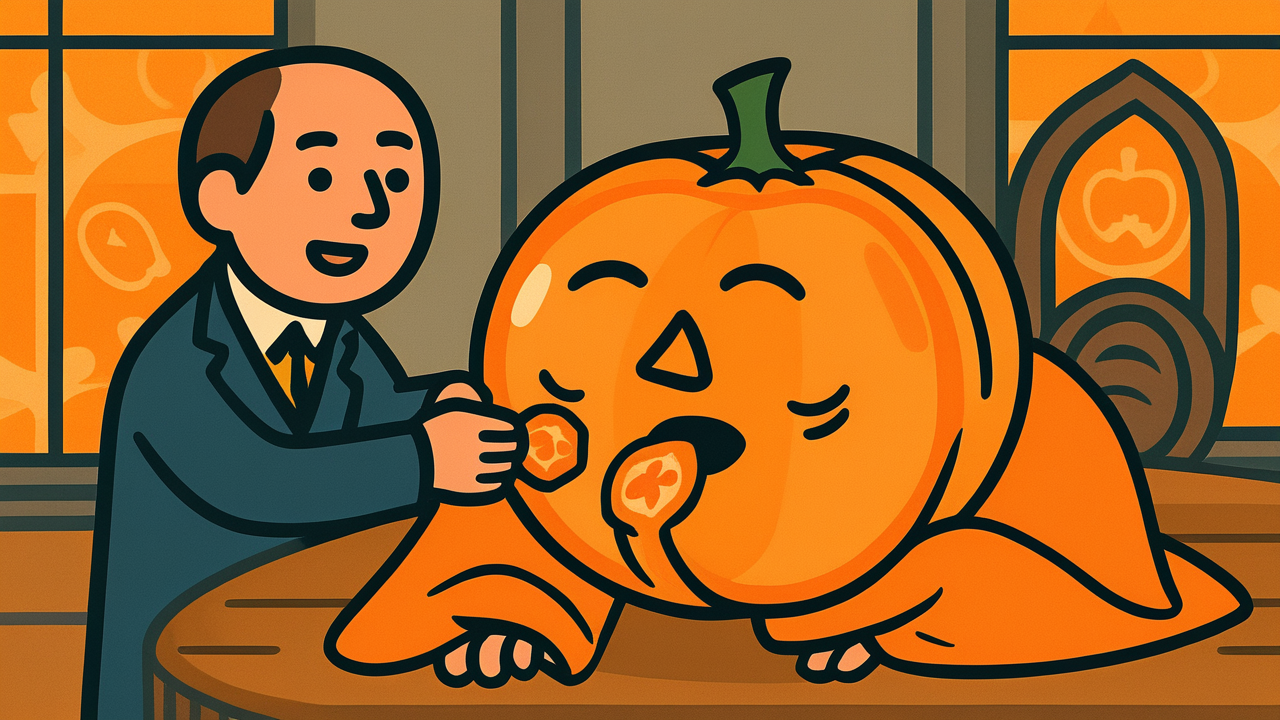How to Read “瓜の皮は大名に剥かせよ、柿の皮は乞食に剥かせよ”
Uri no kawa wa daimyō ni mukaseyo, kaki no kawa wa kojiki ni mukaseyo
Meaning of “瓜の皮は大名に剥かせよ、柿の皮は乞食に剥かせよ”
This proverb teaches the proper method of peeling fruit: melon skin should be peeled thickly, while persimmon skin should be peeled thinly.
By peeling melon skin thickly, you can remove the grassy smell and hardness of the parts near the skin, allowing you to enjoy only the sweet and tender flesh. On the other hand, persimmon skin should ideally be peeled thinly. Since persimmons concentrate their sweetness just beneath the skin, peeling thinly preserves this delicious part.
The contrast between daimyo and beggar humorously expresses the meaning that for melons, it’s fine to peel luxuriously thick, while for persimmons, one should carefully peel thinly without any waste. This goes beyond mere peeling technique to show wisdom for understanding each ingredient’s characteristics and eating them in the most delicious way. Even today, this remains practical teaching that applies well as a cooking method that makes the most of fruit characteristics.
Origin and Etymology
This proverb is said to have originated during the Edo period, expressing life wisdom. It contains practical teachings about fruit peeling that people of that time learned from years of experience.
This expression, born from understanding the characteristics of melons and persimmons respectively, is not merely technical theory about peeling. By using the contrasting positions of daimyo and beggars within the Edo period’s class system as examples, it became established as a more impressive and memorable proverb.
During this era, melons were treasured as a valuable source of summer hydration, while persimmons were beloved by common people as a representative autumn fruit. Because both were familiar ingredients deeply rooted in Japanese dietary life, such practical wisdom was born and spread through word of mouth.
The proverb’s background also reflects Japanese values of disliking waste and cherishing food. It contains the teaching that even a single peel has meaning, and how it’s handled can change the value of food – a lesson filled with the spirit of treasuring things.
Interesting Facts
The parts near melon skin actually contain a bitter compound called cucurbitacin. This causes the grassy smell and bitterness, so peeling thickly can reliably remove this component.
Just beneath persimmon skin is a layer with less tannin and more sugar content. Therefore, by peeling thinly, you can enjoy the persimmon’s natural sweetness to the fullest – there’s scientific basis for this too.
Usage Examples
- My mother taught me “Melon’s skin should be peeled by daimyo,” so today I tried peeling it boldly thick
- Following “persimmon’s skin should be peeled by beggar,” I peeled it thin and was surprised by how truly sweet it was
Modern Interpretation
In modern society, this proverb teaches us the importance of understanding ingredient characteristics. Precisely because we live in an era where fruits are easily available at supermarkets, the attitude of engaging with each individual ingredient is being reconsidered.
In our information society, we can access various cooking methods and ways of eating. However, as this proverb shows, understanding basic ingredient characteristics is the first step to eating deliciously. YouTube cooking videos and recipe sites also highlight proper fruit peeling methods, proving once again the correctness of ancestral wisdom.
Moreover, in modern times when food waste reduction is emphasized, this proverb takes on new meaning. The idea that appropriate processing according to ingredients allows for the most delicious consumption, rather than blindly peeling thin, connects to sustainable dietary life.
On the other hand, modern breed-improved fruits sometimes have different characteristics from the past. Sweet melon varieties and persimmons that can be eaten with skin have appeared, requiring flexibility in applying the proverb. Nevertheless, the basic concept of understanding ingredient characteristics and handling them appropriately remains important today.
When AI Hears This
This proverb vividly illustrates the reversal phenomenon between “social status” and “technical value” in skill acquisition. Peeling melons is simple work that can be done through brute force, while peeling persimmons demands delicate technique—removing the skin thinly and evenly without damaging the flesh.
What’s fascinating is that we can see the prototype of modern “democratization of technology” processes here. Historically, advanced techniques have been entrusted to craftsmen and specialists of low social standing. “Technicians” like swordsmiths, potters, and carpenters possessed far more sophisticated specialized skills than nobles ever did.
Today’s IT revolution follows the same pattern. Programming, a highly advanced skill, was initially handled by technicians on society’s periphery, but now that very technology drives the world. It’s no coincidence that many Silicon Valley founders emerged from outside existing power structures.
What this proverb suggests is that truly valuable techniques develop independently of social status, cultivated by those who need them and can dedicate time to mastering them. The feudal lord handles melon peeling—”impressive-looking but simple work”—while the beggar takes on persimmon peeling—”humble yet highly technical work.” This very division of labor has formed the foundation of technical inheritance and social development.
Lessons for Today
This proverb teaches us modern people the importance of “the right person for the right job.” Even things that appear similar each have their optimal approach.
In work and human relationships too, one method doesn’t apply to everything. The flexibility to understand others’ characteristics and situations, and change responses accordingly, produces better results. Just as melons have their way and persimmons have theirs, people and matters each have their appropriate ways of being approached.
It also shows the importance of cultivating an eye that sees essence rather than making superficial judgments. Just as the difference of a single peel greatly affects taste, small differences can create large differences in results.
The attitude of learning from ancestral wisdom while applying it to modern situations is also important. Surely around you too there are relationships like “melons and persimmons.” By understanding each one’s characteristics and responding appropriately, you can live richer daily life.



Comments